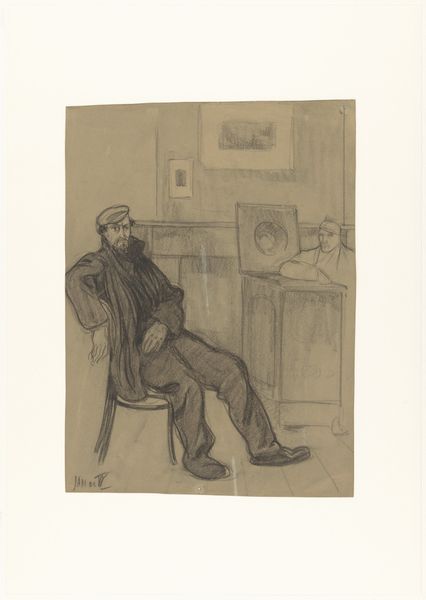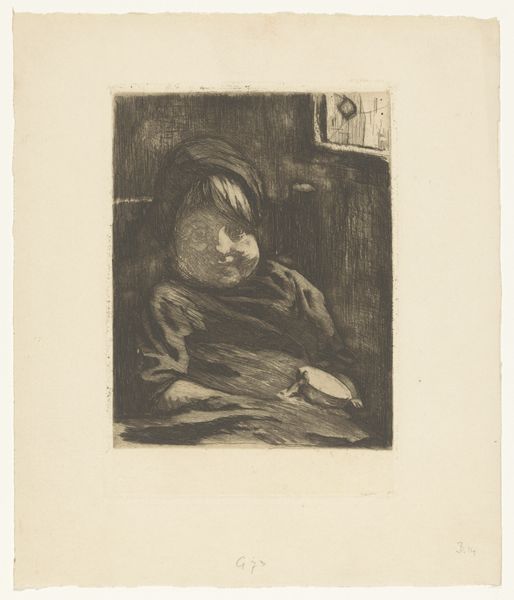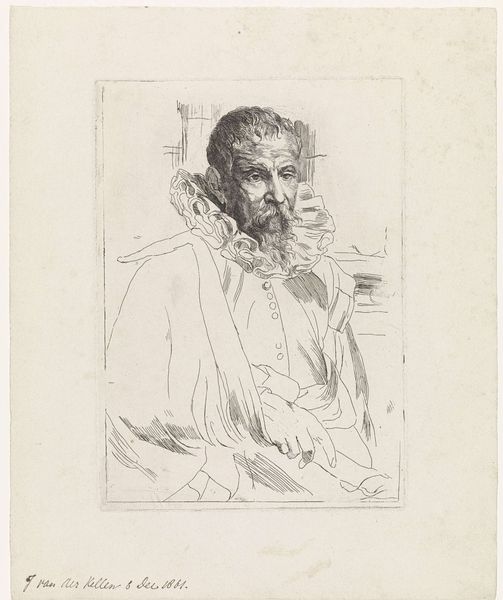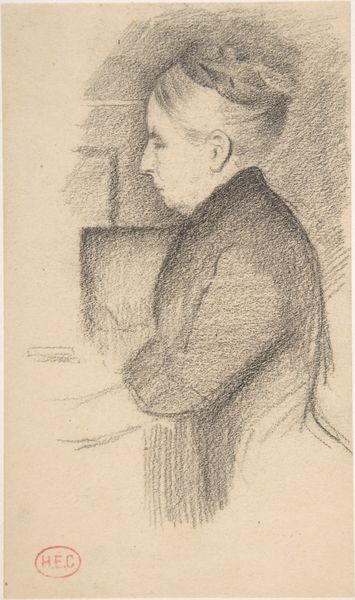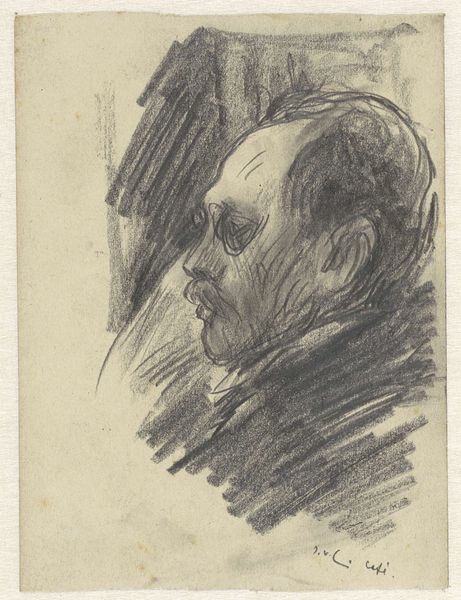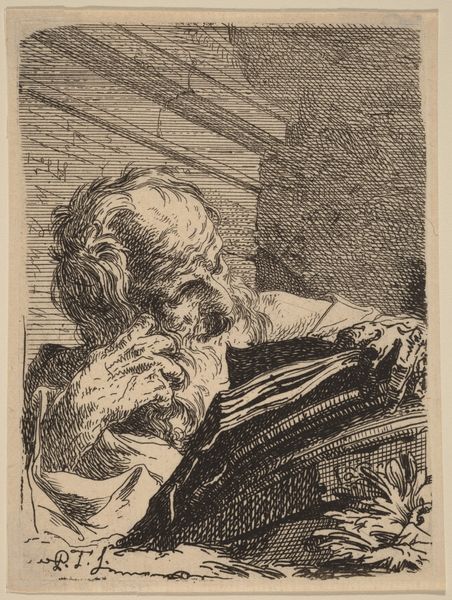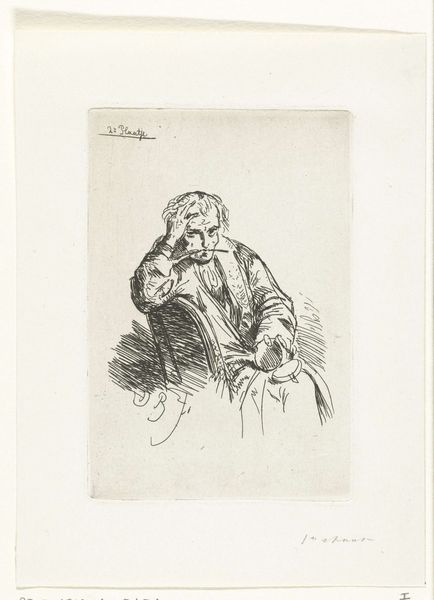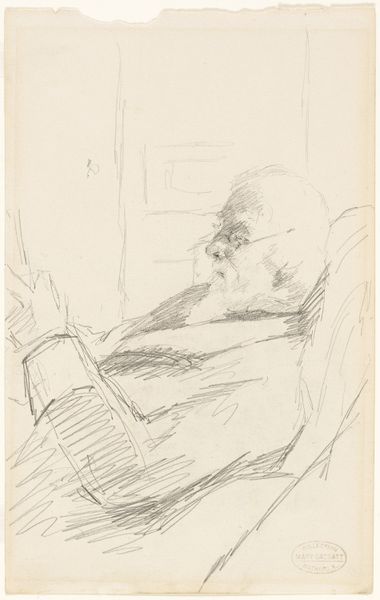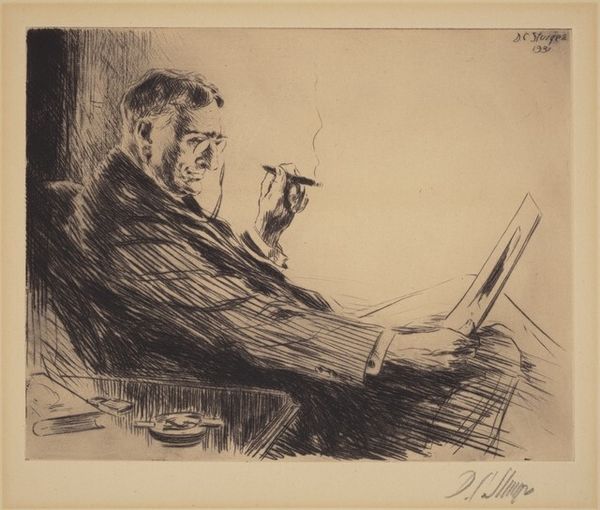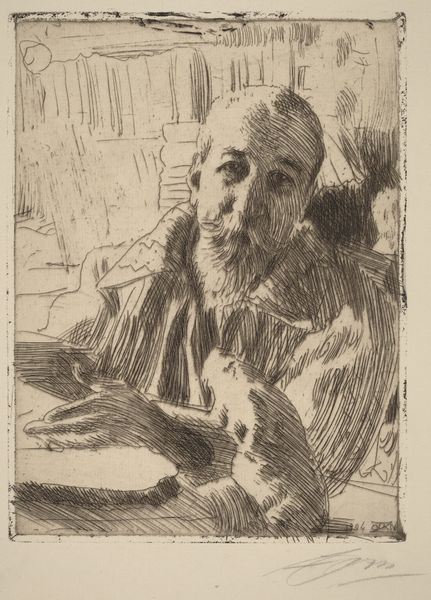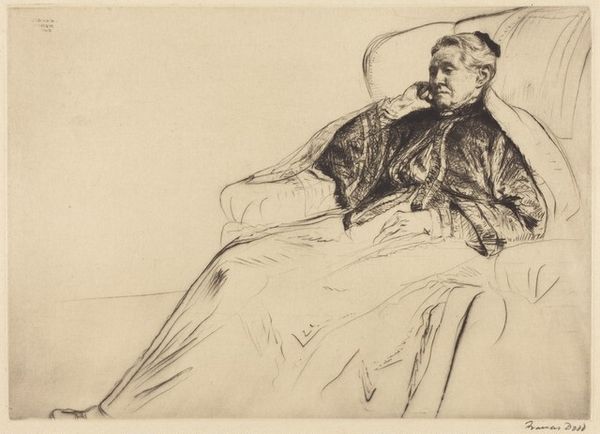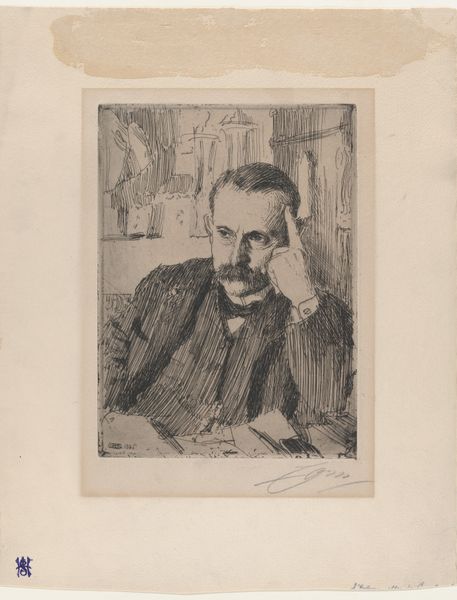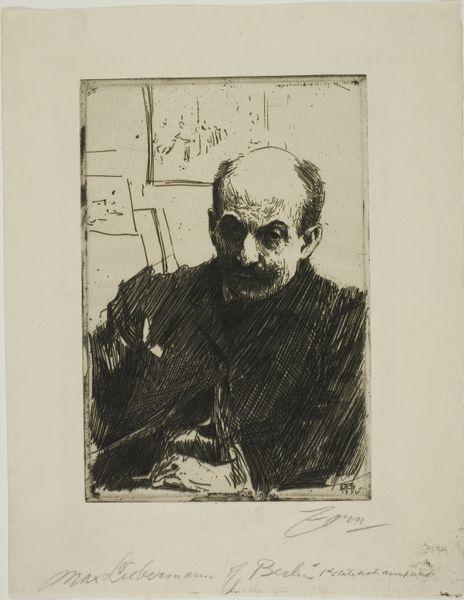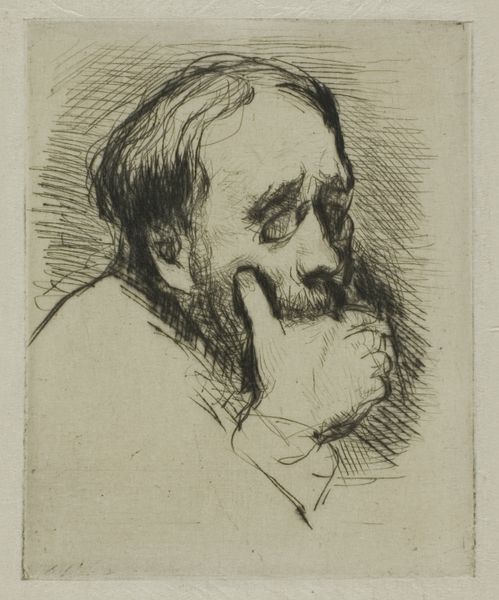
drawing, print, etching, paper
#
portrait
#
drawing
# print
#
etching
#
paper
#
realism
Dimensions: 118 × 178 mm (image/plate); 208 × 299 mm (sheet)
Copyright: Public Domain
Curator: Anders Zorn, the famed Swedish painter, created this print titled "Fredrik Martin" in 1907. It's an etching on paper, and we are fortunate to have it here at The Art Institute of Chicago. Editor: My immediate response is one of weary contemplation. The subject, Mr. Martin, seems lost in thought, doesn't he? His posture, the way he rests his head in his hand, evokes a sense of melancholy. Curator: I see it too. Zorn often captured the psychological states of his subjects. Considering the era—just before the turmoil of the First World War—it's easy to imagine this man burdened by anxieties of the time. The symbol of a thoughtful man is nothing new. In that epoch, portraits started expressing an almost Baudelairean anxiety toward modern urban life. Editor: Precisely. And etchings, with their detailed lines, feel uniquely suited for this kind of psychological exploration. The hatching emphasizes shadows and contours. The dark lines that make his beard, are those maybe symbolical for virility? Curator: It's certainly possible. Though Zorn was more concerned with capturing a likeness and expression, symbols of power like beards remain relevant. He also depicts Martin in a slightly relaxed pose—a hint of informality—almost challenging the very format of the traditional powerful male portrait, something many artists like Manet and Whistler also aimed for. Editor: It is fascinating how those artists subvert established conventions. It's as if Zorn challenges that stoic, unemotional ideal. By showcasing the sitter's vulnerability, his introspection, maybe Zorn reveals a more "modern" concept of masculinity? One open to display emotion without sacrificing power or status. Curator: Definitely. I'm intrigued by how it engages with these narratives around identity. Thanks for illuminating those potent connections! Editor: Likewise! It’s inspiring to see how artworks reflect social changes so profoundly. This conversation made me appreciate Zorn’s work on a deeper level.
Comments
No comments
Be the first to comment and join the conversation on the ultimate creative platform.
